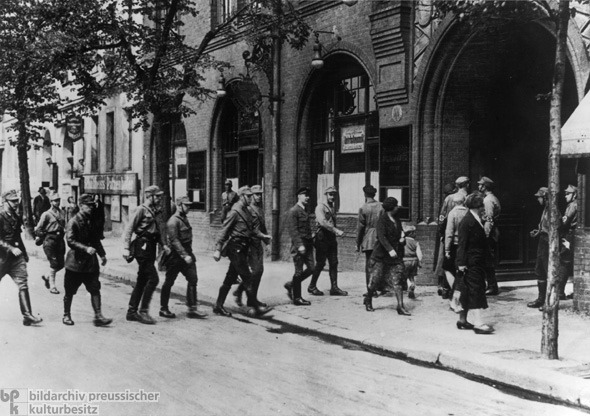On this day, 20 January 1934, Nazi Germany introduced a decree “regulating national labour” which according to the US government “introduced the fuhrer-principle into industrial relations”.
The owner was deemed the fuhrer of an enterprise, who was responsible for making all “decisions for the employees and labourers in all matters concerning the enterprise"… “The employees and labourers owe him faithfulness”.
Robert Ley, head of the German Labour Front, which was set up by the state after all trade unions were banned, told a meeting of Siemens workers in Berlin, some of whom were enslaved labourers: “We are all soldiers of labour, amongst whom some command and the others obey. Obedience and responsibility have to count amongst us again… We can’t all be on the captain’s bridge, because then there would be nobody to raise the sails and pull the ropes. No, we can’t all do that, we’ve got to grasp the fact.”
Along with other measures against radical workers, Nazi policies led Ley to declare in 1935 that Germany was the first European country to end the class struggle. They also helped reduce the share of national income going to workers: which fell from 56.9% in 1932 to 53.6% in 1938, while the share going to big business soared from 17.4% up to 26.6%.
Pictured: Nazis seizing a trade union office
*
If you appreciate our work researching and promoting people’s history like this, consider supporting us on patreon and getting exclusive bonus podcast episodes as well as free books, calendars and more: https://patreon.com/workingclasshistory https://www.facebook.com/workingclasshistory/photos/a.296224173896073/1634244943427316/?type=3





